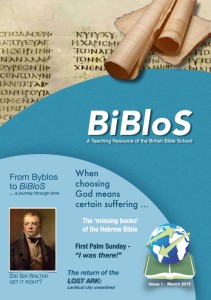“Blessed is the man who walks not in the counsel of the wicked, nor stands in the way of sinners, nor sits in the seat of scoffers; but his delight is in the law of the Lord, and on his law he meditates day and night.” (Psalm 1:1)
I like the permanence of books: what was written stays written until a new edition is published. Websites, though, are different. Sometimes they wither away, becoming increasingly obsolete and irrelevant as time moves on (for example sites dedicated to once popular bands). Then there are those sites that change so quickly that it is impossible to say anything specific as by the time you have read the review the site will have changed yet again. So here is a snapshot of the useful www.biblegateway.com as of March 2015.
The original multilingual searchable Bible website, Bible Gateway was started in 1993 by Nick Hengeveld, a student at Calvin College in Grand Rapids, Michigan, who had a visionary passion to make the Bible digitally accessible to everyone through the very new technology that was to become known as the Internet (see https://www.biblegateway.com/about). Since 2008 Bible Gateway has been part of Zondervan Publishing which is in turn owned by HarperCollins, part of Rupert Murdoch’s media empire. The site is currently free to use and is funded by advertising and links to various relevant products.
Bible Gateway’s great strength and the main reason I use it is its range of searchable Bibles that are readily available. Currently there are Bibles in dozens of languages, from Cherokee to Czech, and – of far greater interest to most of us – more than fifty English Bibles, making it incredibly easy to compare and contrast different translations. Bible Gateway is quick. In my village Broadband is a trickle and my computer while adequate is by no means state of the art or top of the range yet I can find passages in the many versions available faster than I could pull the book off the shelf and look it up – even if I happened to have the translation in question. (I have checked: I have fifteen different translations on my desk so Bible Gateway wins on quantity as well as speed.)
Alphabetically the translations run from the American Standard Version (1901) to Young’s Literal Translation (1898). I confess that I had to look up these dates but each translation has a brief history page for those seeking this information. Several versions are available in different editions so Bible Gateway makes it quick and easy to see where and how, for example, the different versions of the New International Version differ. Available are the NIV Reader’s Version (1996), the current NIV (2011), and the NIV-UK (also 2011). We note that the original, “classic” NIV is no longer available on Bible Gateway, probably at the behest of its American publishers.
There are many other tools available at Bible Gateway, some more reliable than others. You can sign up for various daily devotionals, follow reading plans, listen to audio Bibles, and access study guides. There is so much here that it is impossible to cover everything in a brief survey so we recommend visiting www.biblegateway.com to explore for yourself while offering a useful piece of advice: caveat lector (“reader beware”).
Steven Whitehead
 This article is from BiBloS, a teaching resource of the British Bible School. To read more articles or download the whole of Issue 1, click here.
This article is from BiBloS, a teaching resource of the British Bible School. To read more articles or download the whole of Issue 1, click here.
